Europe Day 2017: My #EU60 story, James Higgins
Europe Day 2017: Eurofound staff explains what Europe means to them to commemorate the 60th Anniversary of the Treaty of Rome #EU60

Europe Day 2017: Eurofound staff explains what Europe means to them to commemorate the 60th Anniversary of the Treaty of Rome #EU60

Europe Day 2017: Eurofound staff explains what Europe means to them to commemorate the 60th Anniversary of the Treaty of Rome #EU60

The background note for the joint Eurofound and Organisation for Economic Co-operation and Development (OECD) high-level conference on social mobility and equal opportunities in Paris, France on Thursday, 4 May 2017, is published.

Today is EU Day of Solidarity between Generations, an occasion to focus on actions needed to make Europe more age-friendly and better adapted to our ageing population. One of our publications focusing on this issue, Sustainable work throughout the life course: National policies and strategies, is now available to order via the EU Bookshop.

In this blog piece, originally posted on Social Europe, Eurofound Research Manager Anna Ludwinek looks at new research that shows that younger Europeans are likely to have fewer opportunities for upward social mobility than preceding generations.

This Friday (28 April) is World Day for Safety and Health at Work. This year's campaign focuses on the need for countries to improve their capacity to collect and utilise reliable occupational safety and health data.

29 April is EU Day of Solidarity between Generations. The objective of this annual celebration is to make the European Union more age-friendly and better adapted to our ageing population, as well as have intergenerational solidarity high on the EU agenda.
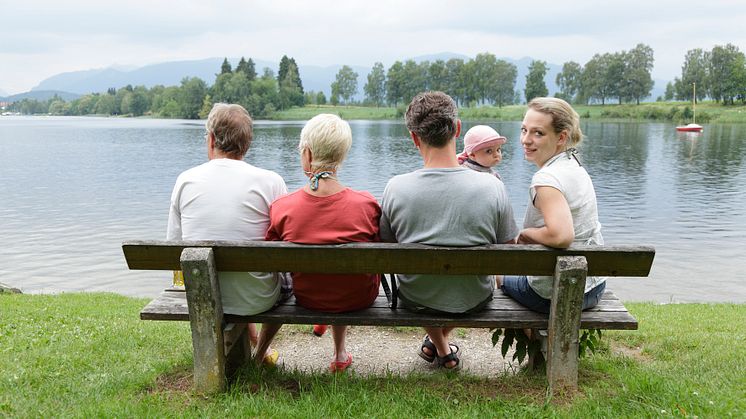
Younger Europeans are likely to have fewer opportunities for upward social mobility than preceding generations. Social mobility in Europe seems to have stagnated - at least in some countries - with opportunities for upward social mobility only increasing in a minority of EU countries for all age groups; in some Member States there is even evidence of decline in social mobility
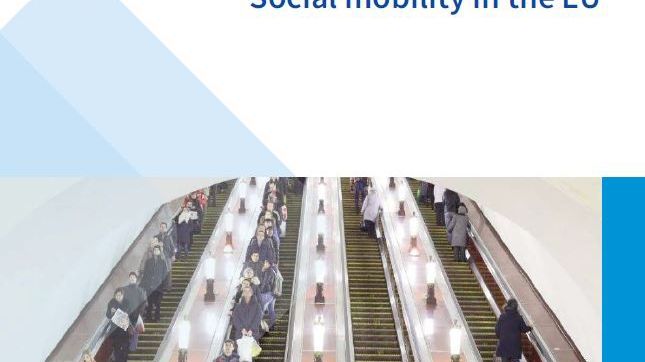
The European Commission has launched a public consultation in the context of the evaluation of the four EU agencies under the remit of DG Employment: Eurofound; the European Centre for the Development of Vocational Training (Cedefop); the European Training Foundation (ETF); and the European Agency for Safety and Health at Work (EU-OSHA).

The European Restructuring Monitor (ERM) 2016 report 'Globalisation slowdown? Recent evidence of offshoring and reshoring in Europe' is available to order for free via the EU Bookshop. Go to http://bit.ly/ERMBookshop

The chart above, based on data from the third EQLS, shows the percentage of people who strongly agreed with the statement ‘I am optimistic about the future’ in 2012.
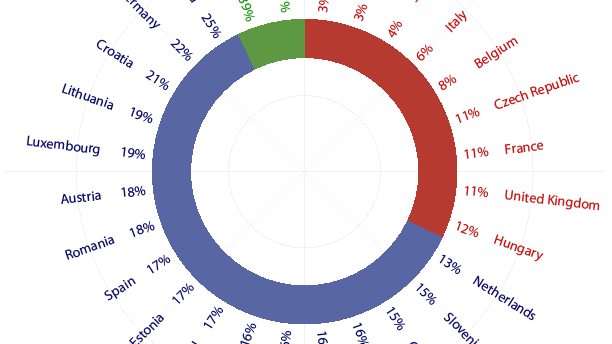
The annual meeting of Eurofound’s correspondents – in the fourth and final year of the current contract – will take place in Dublin on 27–28 March. Guest speaker Raymond Maes, Deputy Head of Unit at the European Commission’s DG Employment, will outline the EU priorities for the coming period.
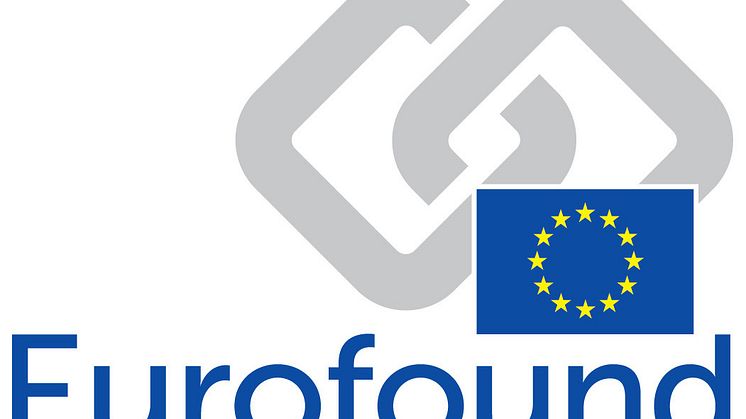
Eurofound is in the process of drawing up a list of academic experts to cover the research areas of its 2017–2020 programme. Experts may be asked to advise on planned research approaches and methodologies or to carry out peer reviews.

Developments in the field of employment and social affairs announced in the European Commission’s work programme for 2017 include initiatives to address the challenges of work–life balance faced by working families, a European Pillar of Social Rights aimed at fostering a fair playing field in the European social market economy, and a White Paper on the Future of Europe.

Eurofound hosted a delegation from the European Parliament’s Committee on Employment and Social Affairs in Dublin on 20–21 February. The delegation included Jean Lambert MEP (Greens/EFA), Joëlle Mélin MEP (ENF), Laura Agea MEP (EFDD), Javi López MEP (S&D), and Lynn Boylan MEP (GUE/ NGL).
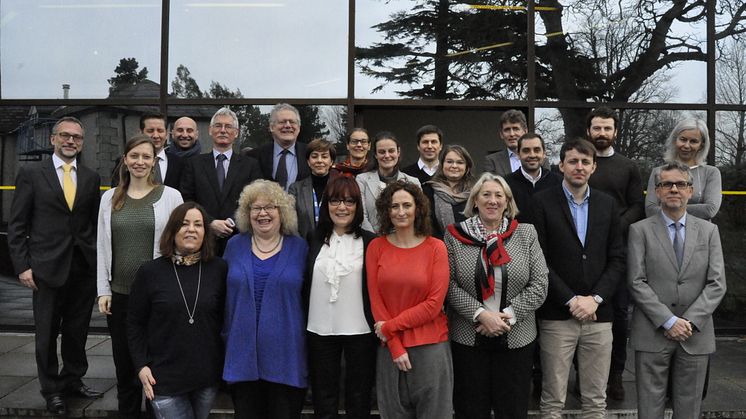
The social partners across Europe are not participating in the European Semester as was originally envisaged, even after the 2015 revamp of the process that aimed to encourage their greater involvement in the drafting of the national reform programmes (NRPs).
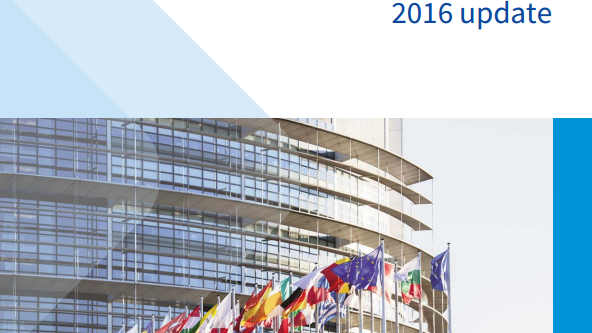
Income inequalities have increased between and within Member States, largely due to growing unemployment levels during the economic crisis.

25 March marks 60 years since the signing of the Treaty establishing the European Economic Community, known as the Treaty of Rome. A seminal document, largely dedicated to economic integration and prosperity, it also enshrined the broader concepts of peace and equality

In this blog piece, originally posted on Social Europe, Eurofound researchers Carlos Vacas-Soriano and Enrique-Fernández-Macías look at the development of income inequalities in Europe since the Great Recession.
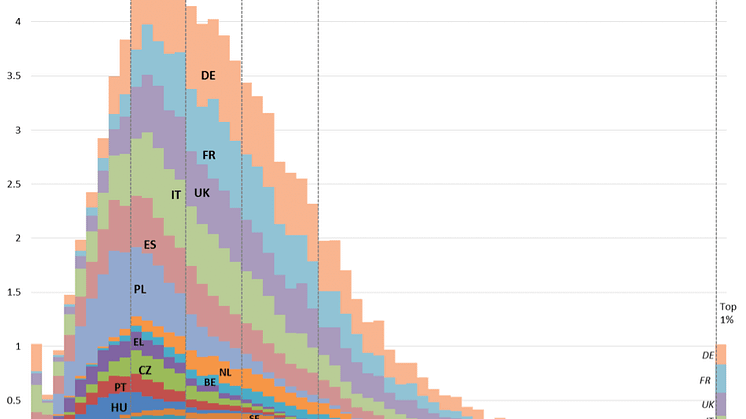
Income inequalities have increased in around two-thirds of EU Member States largely due to growing unemployment levels since the onset of the crisis. At the same time EU-wide income inequality also increased as income convergence between European countries stalled.
